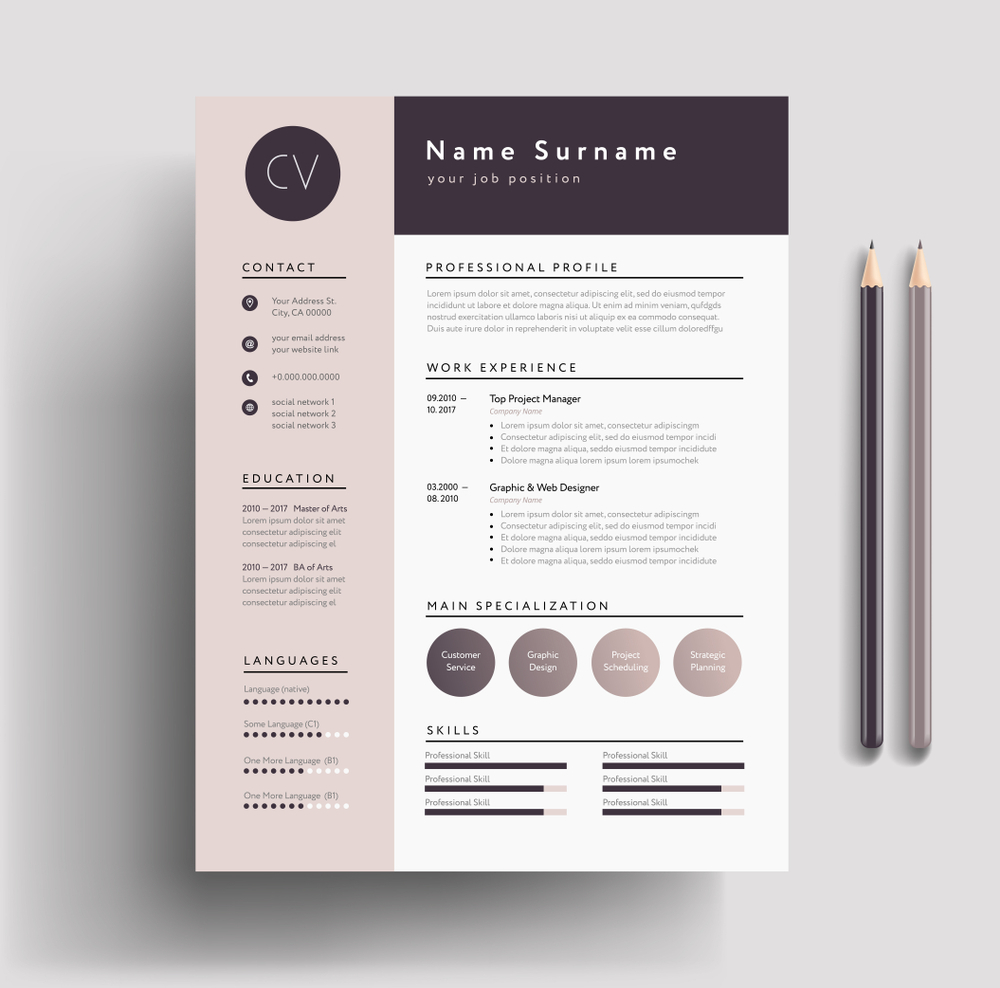How to Avoid Remote Job Search Mistakes
Are you on the hunt for your dream remote job? While the world of remote work offers incredible opportunities, it also comes with its own set of challenges and potential pitfalls. Many talented candidates find themselves struggling to land a remote position, often due to common mistakes in their remote job search strategy.
But don’t worry – I’ve got your back!
In this article, we’ll explore the top mistakes to avoid when searching for a remote job. By steering clear of these missteps and implementing my expert tips, you’ll be well on your way to increasing your chances of success and landing that perfect remote role. So, let’s get started!
Mistake #1: Not Tailoring Your Application
One of the biggest mistakes remote job seekers make is failing to customize their application materials for each position. When you’re applying for a remote job, it’s essential to showcase why you’re the perfect fit for that specific role and company.
 To avoid this mistake, take the time to tailor your resume and cover letter for each application. Highlight the skills and experiences that are most relevant to the position, and use keywords from the job description to demonstrate your fit. For example, if the job requires strong communication skills, emphasize your experience collaborating with remote teams or leading virtual meetings.
To avoid this mistake, take the time to tailor your resume and cover letter for each application. Highlight the skills and experiences that are most relevant to the position, and use keywords from the job description to demonstrate your fit. For example, if the job requires strong communication skills, emphasize your experience collaborating with remote teams or leading virtual meetings.
Remember, a one-size-fits-all approach rarely works in the remote job market. By tailoring your application, you’ll stand out from the competition and show the employer that you’re truly invested in the opportunity.
Read: 7 Secrets to Negotiating a Higher Salary for Your Remote Job
Mistake #2: Neglecting Your Online Presence
Nowadays, your online presence is more important than ever – especially when it comes to remote job searching. Many employers will search for you online before considering your application, so it’s crucial to have a professional and compelling online presence.
Start by optimizing your social media profiles, particularly LinkedIn. Make sure your profile is up-to-date, includes a professional headshot, and highlights your relevant skills and experiences. Consider creating a personal website or portfolio to showcase your work and provide more information about your background and expertise.
Consistency is key when it comes to your online presence. Ensure that your personal brand is cohesive across all platforms, from your social media profiles to your personal website. This helps create a strong and memorable impression on potential employers.
Mistake #3: Failing to Prepare for Remote Interviews
Remote interviews come in various formats, from phone screens to video calls. To avoid stumbling during these critical interactions, it’s essential to prepare thoroughly and create a professional environment, even from the comfort of your own home.
First, familiarize yourself with the most common remote interview formats and platforms, such as Zoom, Skype, or Google Meet. Test your technology well in advance to ensure your camera, microphone, and internet connection are working properly. You don’t want technical glitches to derail your interview!
Next, set up a professional interview space at home. Choose a quiet, well-lit area with a neutral background. Avoid distracting elements like clutter, family photos, or busy wallpaper. Dress professionally, just as you would for an in-person interview.
During the interview itself, communicate clearly and effectively. Speak directly into the camera, maintain eye contact, and use positive body language. Be prepared to discuss your experience working remotely and how you stay productive and engaged in a virtual environment.
By avoiding these common mistakes and implementing our tips, you’ll be well-prepared to tackle any remote interview that comes your way!
Mistake #4: Not Researching the Company and Position
One of the biggest mistakes you can make in your remote job search is failing to thoroughly research the company and the position you’re applying for. In a competitive remote job market, employers are looking for candidates who are not only qualified but also genuinely interested and invested in their organization.
Before applying for a remote position, take the time to dive deep into the company’s background, culture, values, and remote work policies. Visit their website, read their blog, and check out their social media presence. Look for news articles, press releases, or industry reports that mention the company.
When it comes to the specific position, carefully review the job description and requirements. Try to understand the key responsibilities, qualifications, and expectations for the role. Consider how your skills and experiences align with what the company is looking for.
During the application and interview process, demonstrate your knowledge and interest in the company and position. Mention specific aspects of the company that resonate with you, and explain how your background and goals align with their mission and values. By showing that you’ve done your homework, you’ll stand out as a truly engaged and enthusiastic candidate.
Mistake #5: Underestimating the Importance of Networking
In a remote job search, networking is just as important – if not more so – than in a traditional job search. Without the opportunity for face-to-face interactions, building and maintaining professional relationships remotely can be a challenge. However, it’s a challenge worth tackling, as networking can open doors to valuable connections, advice, and even job opportunities.
Start by leveraging your existing network. Reach out to former colleagues, classmates, or mentors who may have insights or connections in your desired field or industry. Let them know you’re exploring remote job opportunities and ask if they have any advice or leads to share.
 Next, expand your network by engaging with online communities and resources. Join industry-specific groups on LinkedIn, participate in relevant forums or chat rooms, and attend virtual conferences or webinars. These digital spaces can be goldmines for connecting with like-minded professionals and discovering new opportunities.
Next, expand your network by engaging with online communities and resources. Join industry-specific groups on LinkedIn, participate in relevant forums or chat rooms, and attend virtual conferences or webinars. These digital spaces can be goldmines for connecting with like-minded professionals and discovering new opportunities.
When building relationships remotely, prioritize authenticity and value. Focus on genuine interactions and providing support or resources when you can. By establishing yourself as a helpful and engaged member of your professional community, you’ll be more likely to receive support and guidance in return.
Read: 5 Things to Know Before Applying for a Remote Job
Mistake #6: Ignoring Red Flags
In the excitement of a remote job search, it can be tempting to overlook potential red flags or warning signs. However, ignoring these red flags can lead to wasted time, energy, and even fraudulent or scam situations.
Some common red flags in remote job postings include:
- Vague or unclear job descriptions
- Promises of high pay for little work
- Requests for personal information or money upfront
- Unprofessional or suspicious communication
If a job opportunity seems too good to be true or raises your suspicions, trust your instincts and ask questions. A legitimate employer will be happy to provide more information or clarify any concerns you may have.
Remember, a remote job search is not just about finding any opportunity – it’s about finding the right opportunity for you. By staying alert to potential red flags and prioritizing quality over quantity, you’ll be better equipped to find a remote position that aligns with your goals and values.
Mistake #7: Failing to Follow Up
Finally, one of the most overlooked mistakes in a remote job search is failing to follow up after submitting applications or completing interviews. In a virtual environment, it can be easy to assume that no news is bad news. However, following up can demonstrate your continued interest and enthusiasm for the position, and even give you a competitive edge.
After submitting an application, consider sending a brief follow-up message to reiterate your interest and qualifications. This can be especially effective if you have additional information or materials to share, such as a relevant project or recommendation.
If you’ve completed an interview, be sure to send a thank-you note within 24 hours. Express your appreciation for the opportunity, highlight any key points from the conversation, and reaffirm your interest in the position.
If you haven’t heard back after an interview or application, don’t be afraid to reach out and inquire about the status of your candidacy. A polite and professional message can remind the employer of your application and demonstrate your proactive approach.
By making a habit of following up and maintaining communication, you’ll show that you’re truly invested in the opportunity and committed to seeing the process through.


